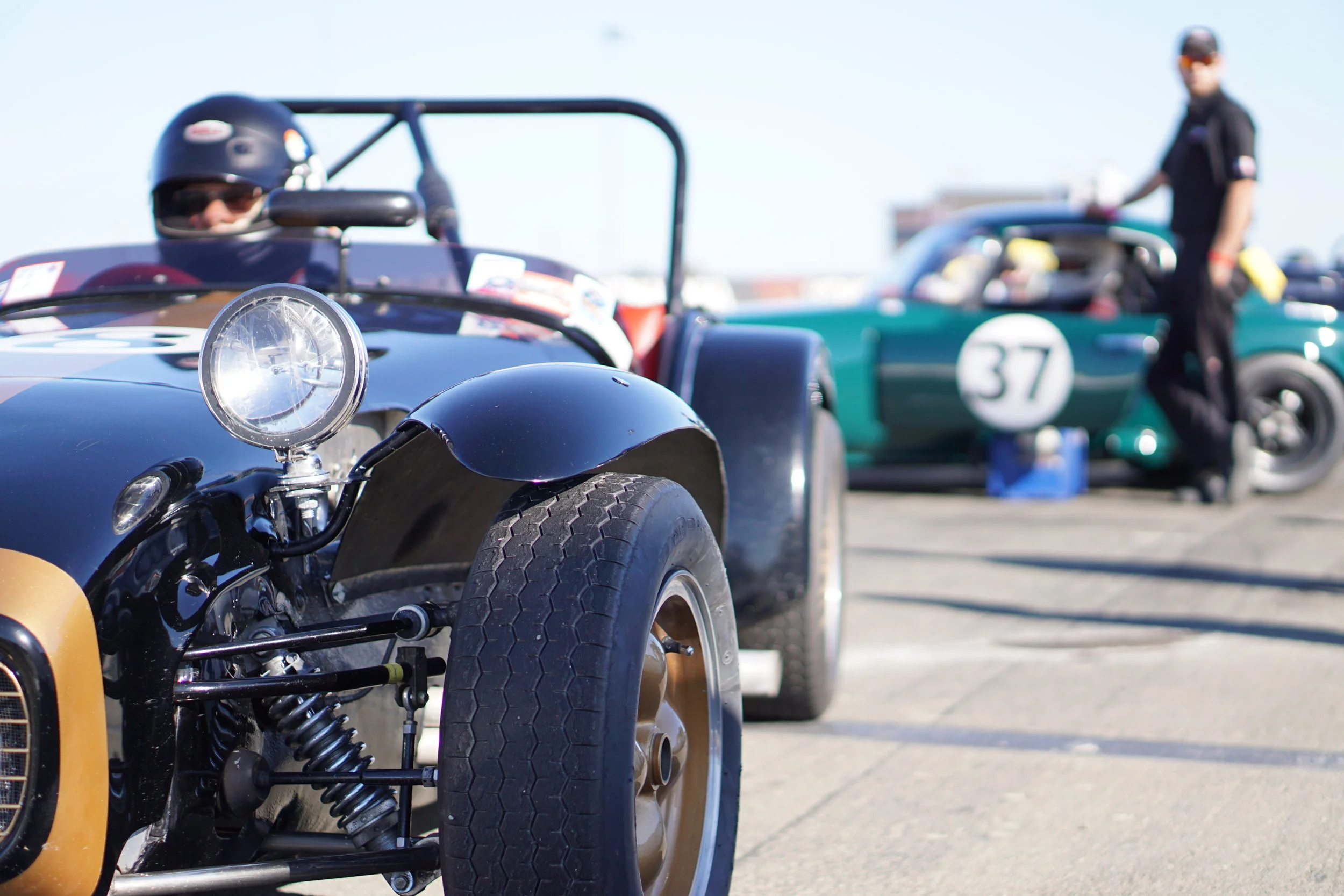Choosing your first race car
So this is the part where we try to give you "sensible" advice. Your first vintage race car, if you are a novice, should be a light, low (ish) horsepower car. If you are an expert with years of racing and track-days under your belt, you can go ahead and get the high horsepower beast of your dreams. But if this is really the beginning of the journey for you, a light, agile, smaller engined car will be a blast without scaring the crap out of you, and it will teach you a lot.
The right car also has to match your passion (you should love it!) budget and mechanical ability. The good news is that there is a huge range of cars to choose from and whether you love Japanese cars from the 60's and 70's, Italian Cars from any era, you crave a BMW, a Mini, or have always had "a thing" for Porsches, or boxy Alfa sedans, there is a car out there waiting for you. All the marques, major and minor have a strong following. That means there will be fellow club members ready to help you with advice, support and the odd spare part .
The second bit of advice, is to buy a car that is already a race car. You can build a car. You need to decide the era and rule set (most vintage clubs comply to a very similar set of rules) you are building it for and go from there... on your own or with the help of a race shop. Building your own car can be deeply satisfying if you are willing to make the effort. But if you get a car that is already built, has a logbook or racing record, you will be both preserving a old warhorse, but also saving a lot of time and effort.
A good novice car will have between 100 and 150 horsepower, usually under 2500 cc's and will come from one of the less wildly modified classes. Below are few of examples what we mean.
IMPORTANT - CHECK WITH YOUR CLUB'S RACE DIRECTOR FOR A CAR'S ELIGIBILITY BEFORE YOU BUY IT. MOST OF THE TIME ITS JUST FINE, BUT YOU WANT TO BE 100% SURE TO AVOID ANY COSTLY MODIFICATIONS YOUR CLUB MIGHT REQUIRE.
Lotus 7, light, incredible handling, simple, a blast to drive, great parts support
Classic Minis make fantastic race cars, silly amounts of fun
Austin Healy Sprite, dead simple, fantastic parts and technical support, super agile, very quick in the right hands
Alfas of all kinds sound great, look amazing and provide a ton of driving pleaure
Open wheel and sports racers
If your passions run more to pure, purpose built race cars, there are several classes that make sense for the novice. While we don't recommend sports racers for novices, there are several open wheel classes that work great. Most of these were part of the ladder system that led drivers to Formula 1 or Indycars. Formula Fords, Formula V and if you have more budget a Formula Junior all fit this category.
Their light weight means incredibly quick lap times for their horsepower, and their design makes maintaining and setting them up fairly straight forward. They also have bulletproof, long lasting engines and good parts support.
Lola, Titan, Merlyn, Tiga, Crossle, Lotus, Winklemann and many more. These were the cars that launched the careers for Formula 1 drivers starting in 1968. Champions like James Hunt, Emmerson Fittipaldi, Gilles Villeneuve, and Ayrton Senna all got their start in a Formula Ford.





